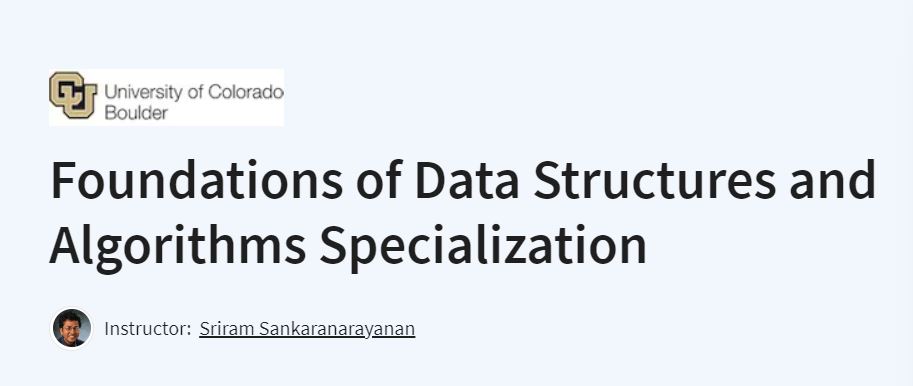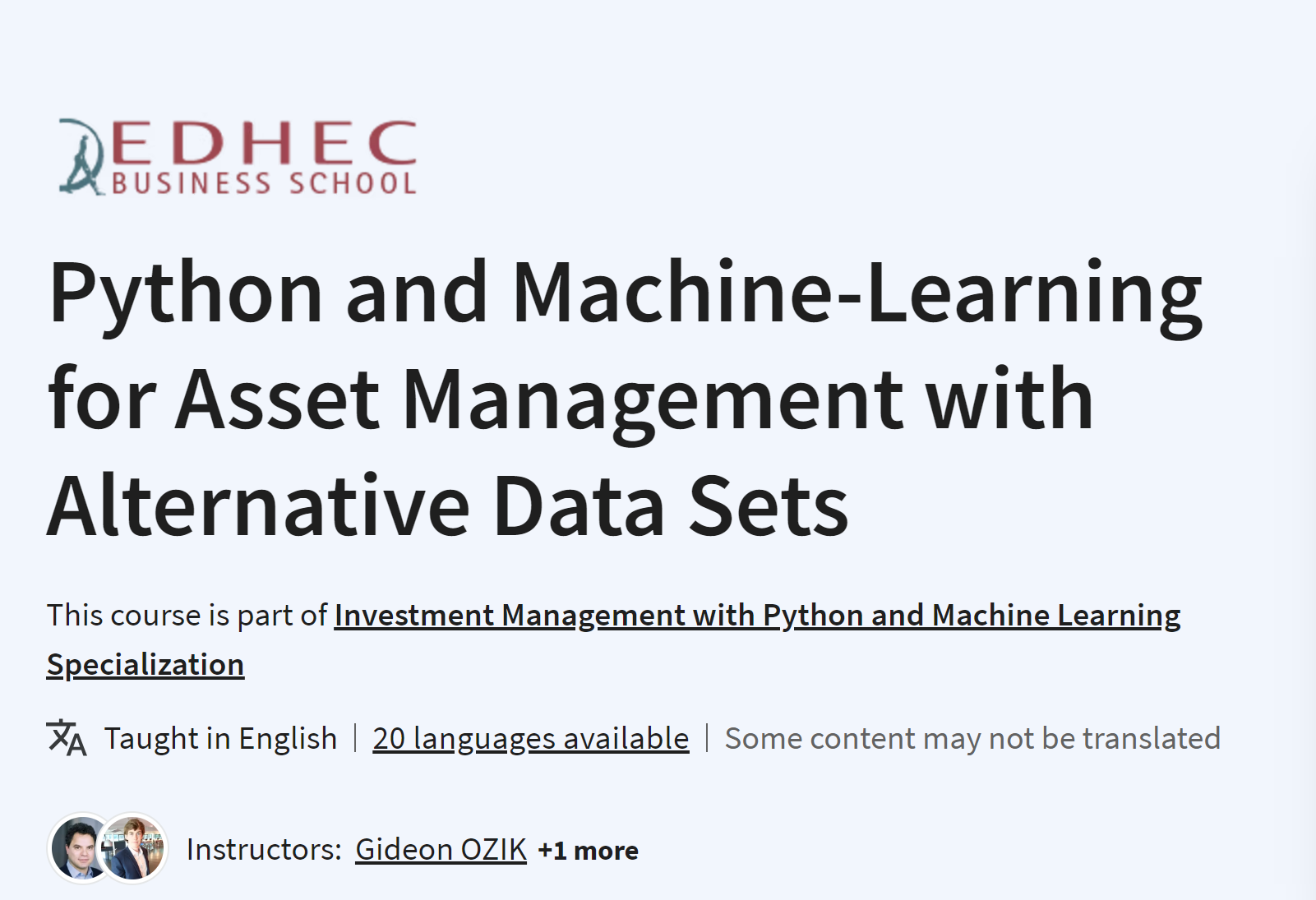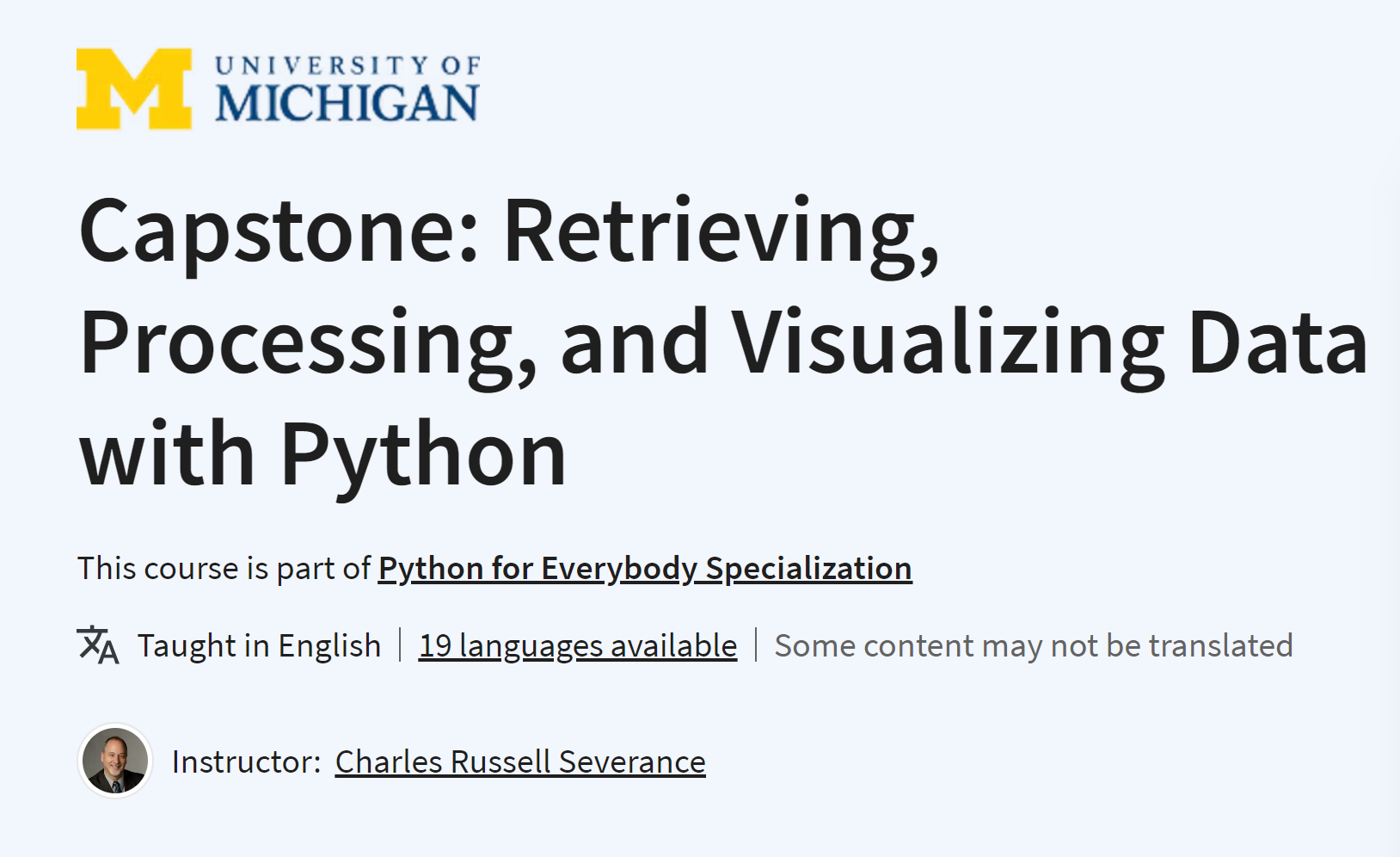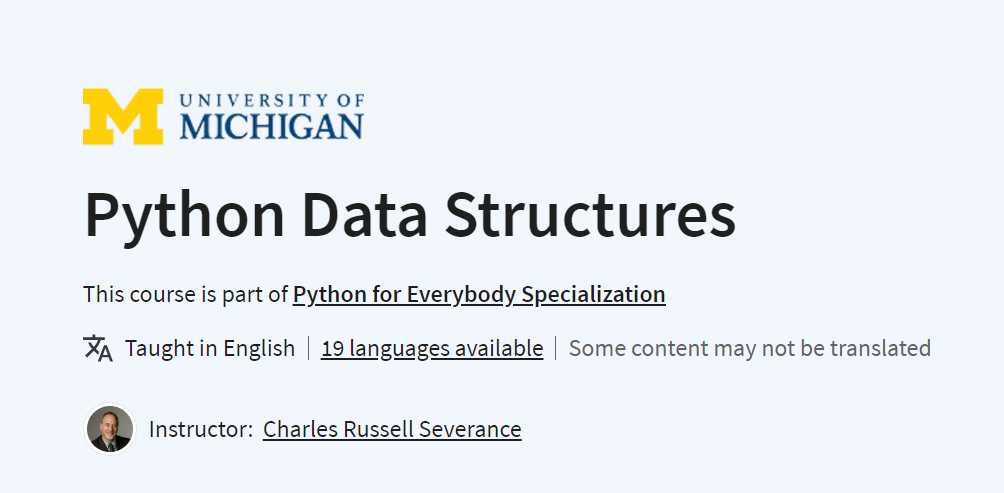Join Free: Django Application Development with SQL and Databases
Building Dynamic Web Applications with SQL, Databases, and Django: A Course Overview
Web applications are at the heart of today’s digital world, and having a solid grasp of backend development is key to creating responsive, data-driven platforms. If you're eager to dive deep into developing robust web applications, the "Developing Applications with SQL, Databases, and Django" course on Coursera is a must-take. This course is designed to help developers integrate SQL databases seamlessly with Django, providing the skills needed to build sophisticated and data-intensive applications.
Course Overview
The "Developing Applications with SQL, Databases, and Django" course is part of a series designed to equip developers with the skills to use Django effectively alongside SQL databases. The course covers everything from setting up databases to connecting them with Django models, providing a comprehensive learning experience for both beginners and those looking to refine their skills.
Key Learning Objectives
Introduction to SQL and Databases: The course starts with an overview of SQL (Structured Query Language), the standard language for managing and manipulating databases. You'll learn the basics of creating, reading, updating, and deleting data using SQL queries.
Database Design and Normalization: A well-structured database is essential for performance and scalability. The course covers the fundamentals of database design, including how to normalize your data to avoid redundancy and ensure data integrity.
Django Models and ORM: One of Django’s standout features is its Object-Relational Mapping (ORM) system, which allows you to interact with your database using Python code. You'll learn how to define models, create relationships between tables, and perform database operations without writing SQL.
Building Data-Driven Applications: The course emphasizes practical, hands-on experience by guiding you through the process of building a data-driven web application. You’ll learn how to connect Django to various SQL databases, create dynamic web pages that interact with your database, and manage data efficiently.
CRUD Operations with Django: CRUD (Create, Read, Update, Delete) operations are fundamental to any application dealing with data. The course provides step-by-step instructions on how to implement these operations using Django views, forms, and templates, ensuring your web app can interact smoothly with its database.
Advanced Querying Techniques: Beyond basic queries, the course delves into advanced SQL techniques such as joins, subqueries, and indexing. You'll also learn how to optimize your queries for better performance, a critical skill for managing large datasets.
Security Best Practices: Security is a top priority when dealing with databases. The course covers best practices for securing your SQL database and protecting sensitive data, including how to handle user authentication and prevent common vulnerabilities like SQL injection.
Deploying Django Applications with SQL Databases: Finally, the course walks you through the deployment process, ensuring that your Django application and SQL database are configured correctly for a production environment. You’ll learn how to handle migrations, backups, and other essential deployment tasks.
Why This Course Stands Out
Practical, Project-Based Learning: The course's project-based approach ensures you gain hands-on experience with real-world applications. This method helps solidify your understanding of both SQL and Django while giving you practical skills you can apply immediately.
Expert Instruction: Taught by knowledgeable instructors with real-world experience, the course provides expert insights into best practices, common pitfalls, and advanced techniques.
Comprehensive Curriculum: The course covers the full spectrum of SQL and Django integration, making it ideal for those who want to develop a holistic understanding of backend development.
Flexible Learning Path: Coursera’s flexible learning model allows you to learn at your own pace, making it easy to balance your studies with work or other commitments.
Who Should Enroll?
This course is ideal for:
Aspiring Backend Developers: If you’re new to backend development and want to build a strong foundation in SQL and Django, this course offers a clear path forward.
Web Developers Looking to Expand Their Skills: For front-end developers or full-stack developers looking to deepen their backend expertise, this course provides the necessary skills to handle complex data interactions.
Anyone Interested in Data-Driven Applications: Whether you’re a student, freelancer, or entrepreneur, understanding how to connect and manage databases with Django is a valuable skill in today’s data-centric world.
Conclusion
The "Developing Applications with SQL, Databases, and Django" course on Coursera offers a comprehensive introduction to building data-driven web applications. By mastering SQL and integrating it with Django, you’ll be well-equipped to create dynamic, secure, and scalable web applications. Whether you’re starting your journey in web development or looking to enhance your existing skills, this course provides a practical, hands-on approach to learning that sets you up for success.





.PNG)






.png)








.png)
.png)


.png)

.png)

.png)
.png)





.png)



.png)








.png)

.png)
.png)
.png)







